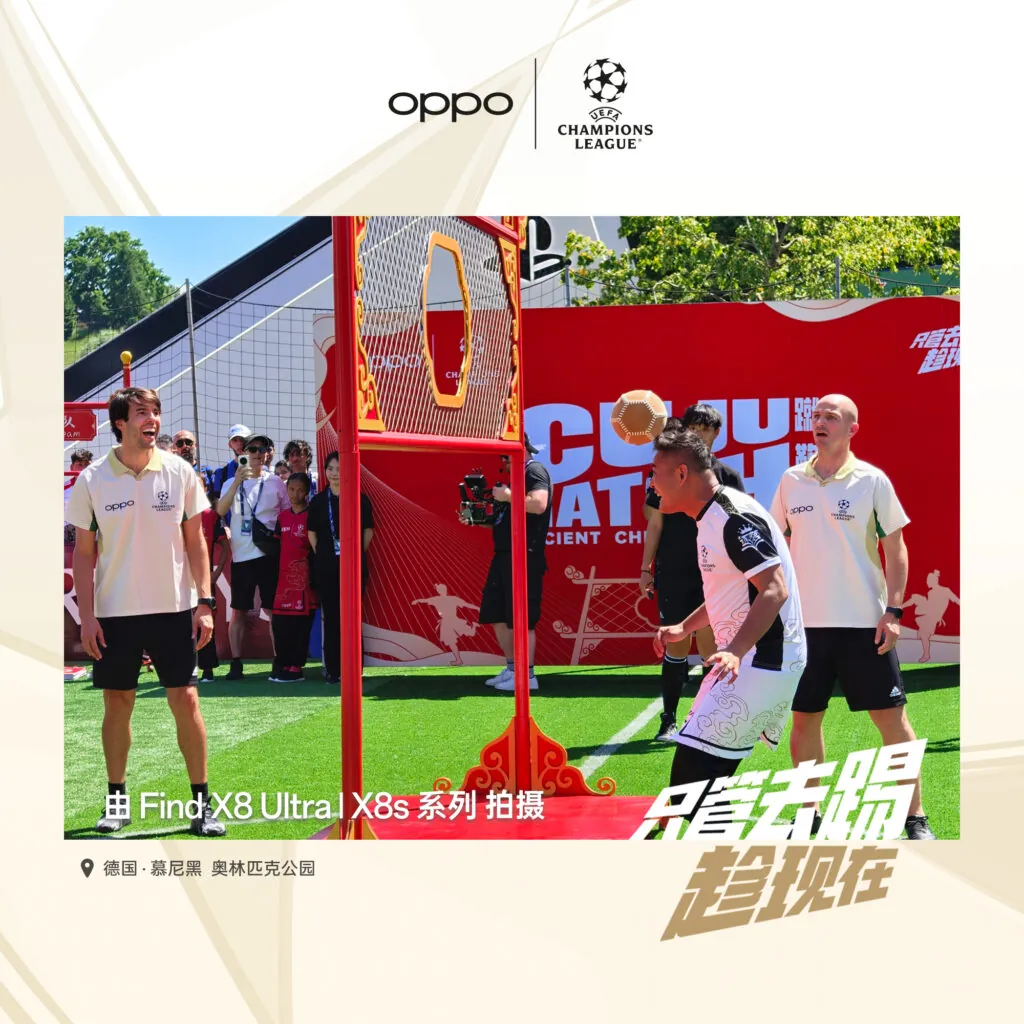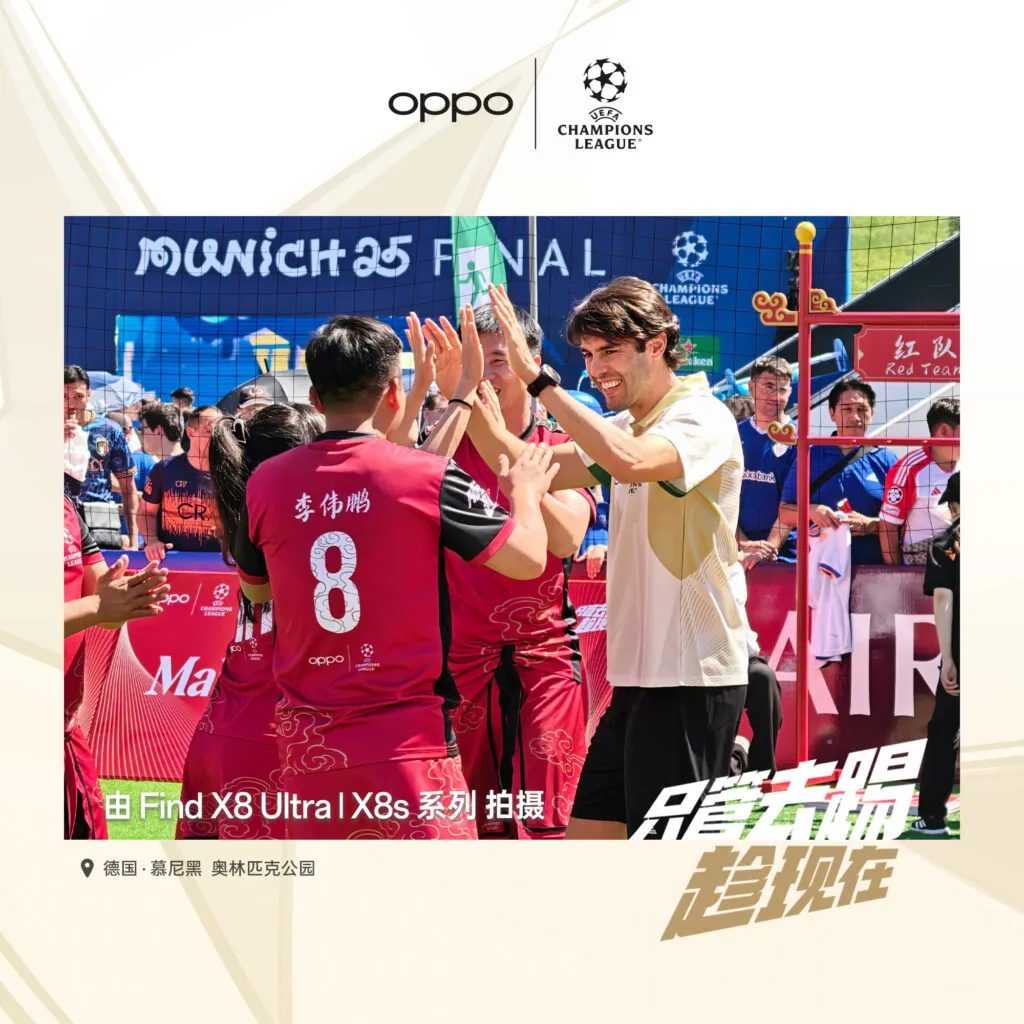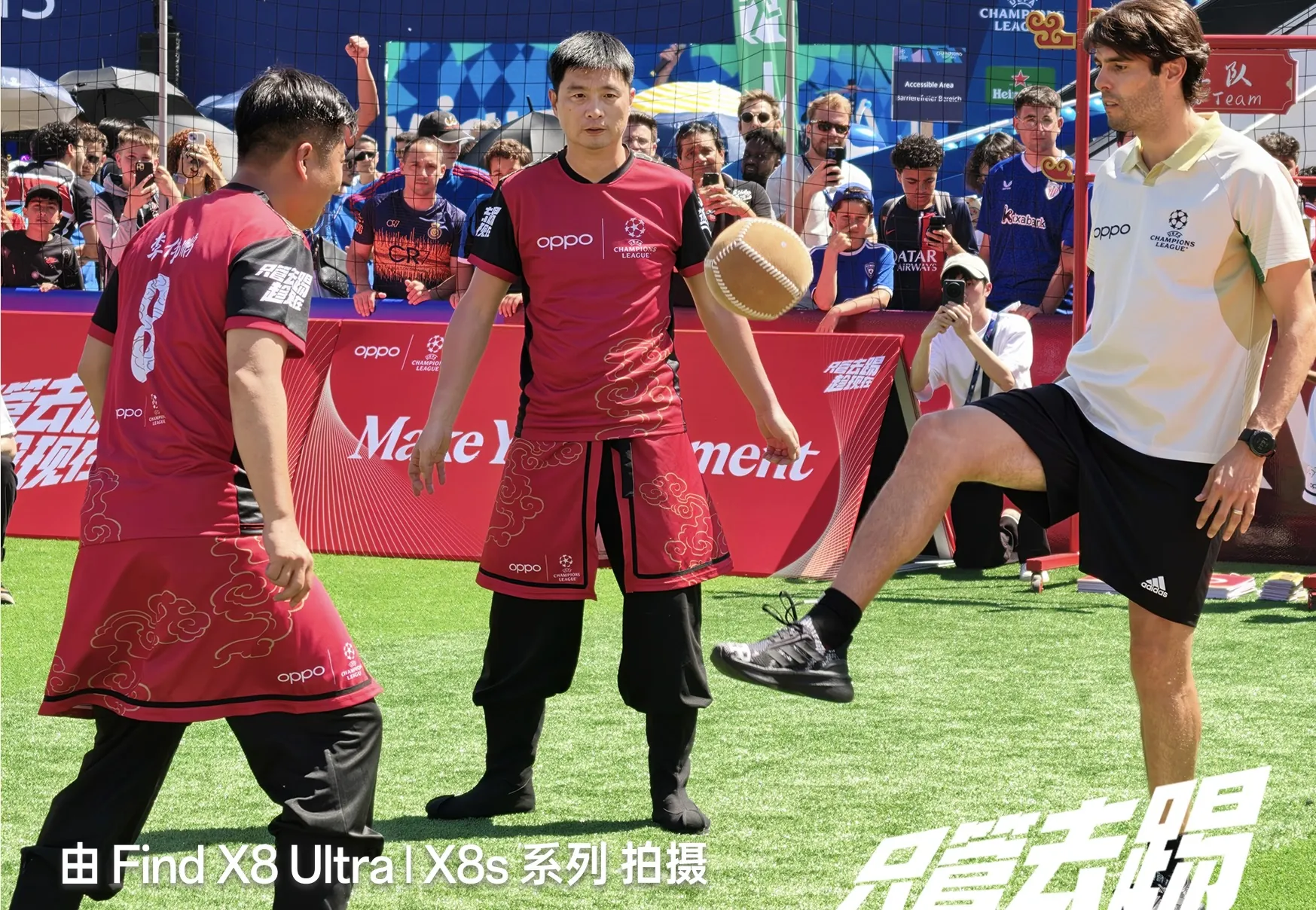As the UEFA Champions League concluded, the Chinese smartphone maker OPPO’s ad for this year’s matches were under the spotlight again. OPPO’s football-themed campaign started with cuju, the ancient football game from China and ends with the Champions League final in Munich. For the campaign, OPPO also recruited former Brazilian footballer Kaká and brought the Chinese intangible cultural heritage (ICH) to Munich.
The campaign started with an introductory video of cuju, originating in China since the Warring States era (c. 475-221 BC) and became a standardised game during the Western Han Dynasty (202 BC – 9 AD), popular among aristocrats and the military. The video shows the two 7th-generation ICH inheritors of cuju, Ma Guoshuai and Li Weipeng, training children. A second video shows one of the inheritors in period dress in an ancient street with Kaká in a modern football kit. Just as the two begin to play, they are transported to Munich and take photos of the Olympiastadion with an OPPO smartphone.


On 31 May, the day of the final match of the Champions League, the inheritors and Kaká hosted an event at the Olympiapark in Munich, showcasing the fun side of cuju. Cuju has seen a revival in recent years, and the OPPO ad is also not Kaká’s first rodeo with the ancient Chinese game. Back in 2013, Kaká played cuju with the Linzi cuju team. Linzi, Shandong, is where cuju originates, and is sometimes called the origin of all football games in the world.
Not only is football extremely popular in China, including the UEFA Champions League, but ICHs like cuju are one of the hottest topics in China. However, the OPPO ad featuring Kaká is more than just a successful sport-centric campaign for its smartphones; it also brings part of the traditional Chinese culture to Europe. This not only appeals to fans back home but also helps to build bridges between China and the West.




